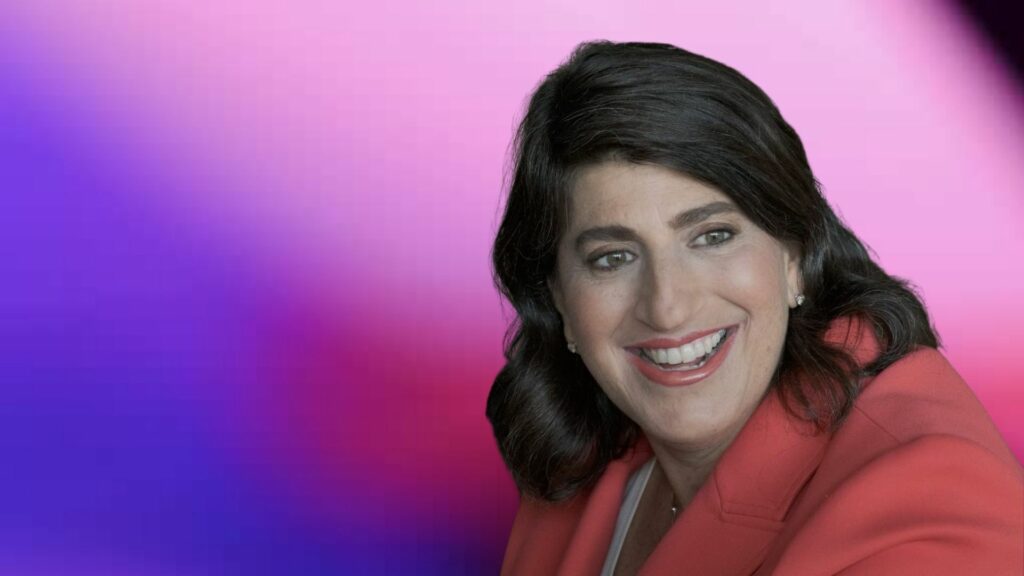Beyond rainbows: unveiling the hidden struggles of LGBTQ+ family planning

Family planning is a deeply personal and often private matter that is rarely discussed among coworkers, acquaintances, or even extended family members. Wherever you happen to be on your own family planning process (or decision to not become a parent), it may come as a shock to learn that LGBTQ+ parents-to-be can face expenses of over $100,000 when embarking on their path to starting a family. As Pride Month shines a spotlight on the LGBTQ+ community, MBAchic believes it’s crucial that allies do more than rainbow washing to signal support. That’s why our team is inviting the MBAchic community to delve into the challenges faced by our LGBTQ+ members who have family planning on the horizon. Despite advancements in legal recognition and societal acceptance, LGBTQ+ individuals and couples still encounter significant obstacles on their path to parenthood. By openly discussing these obstacles, we can embrace the spirit of Pride Month not only in celebration but also in solidarity, committing to the ongoing fight for equality and justice for all LGBTQ+ individuals and their families.
Legal and Social Barriers
LGBTQ+ individuals and couples have various paths to consider when growing their families, including foster care, adoption, at-home insemination, platonic co-parenting arrangements, in vitro fertilization, and surrogacy, to name a few. However, each of these options comes with associated costs and legal requirements, which may pose accessibility challenges based on household income and societal privilege.
While the legal terrain for LGBTQ+ people in the United States has changed significantly in recent years, many concerns remain. In many parts of the country, discrimination against LGBTQ+ people is still legal in the areas of housing, insurance, education, and public accommodations. Only 21 states and the District of Columbia have nondiscrimination laws that include both sexual orientation and gender identity; even in the limited number of states with nondiscrimination laws, religious exemptions still allow discrimination in some cases.
Religious exemptions that permit child welfare or adoption agencies to deny services to LGBTQ+ prospective foster or adoptive parents on religious grounds still exist in 2023. Consider how as recently as 2021, the U.S. Supreme Court decided Fulton v. City of Philadelphia, a case that involved a Catholic-affiliated adoption agency in Philadelphia that refused on religious grounds to receive adoption applications from prospective LGBTQ+ parents.
Emotional and Psychological Struggles
Because parenting and foster and adoption laws, practices, and procedures vary throughout the U.S., and many states do not have express protections for LGBTQ+ parents, these individuals can feel particularly vulnerable to discrimination or retribution. This is especially true for transgender parents who have historically faced discrimination in the courts, custody disputes, foster care, and adoption, and a non-biological parent who does not have legally-established rights to children.
Inclusive fertility clinics across the country are dedicated to easing the challenging process of navigating the healthcare system. Kindbody doctors Juan Alvarez and Holly Mehr offer some insight into how heading into a doctor’s office can be more intuitive and empowering, specifically for LGBTQ+ people.
“Specifically going to a place that acknowledges the fact that it is more difficult for LGBTQ+ individuals to go through fertility treatments for multiple reasons, this is why we have our EOS team. We also couple with psychologists for our patients and give resources to talk about the process, to discuss your goals, your fear,” explains Reproductive Endocrinologist Dr. Juan Alvarez. “As a company, as a whole, we understand that this can be difficult for LGBTQ+ couples.”
Despite the societal pressures and prejudices that frequently contribute to feelings of isolation, self-doubt, and fear, Dr. Holly Mehr, a Reproductive Endocrinologist and Reproductive Surgeon, emphasizes the significance of gathering information about personal fertility and the overall process, whether an LGBTQ+ individual is currently prepared to have a baby or contemplating it in the near or distant future.
“Planning for your future is really helpful,” Dr. Mehr explains. “For those that are in the LGBTQ+ community making families, it can feel like there are barriers to you getting to that point, but there is a lot more thought, planning, conversations, desire, and intention that goes into family planning than the average cis-hetero couple when they’re starting their journey. We hope to be a partner to you.”
Financial Implications
Regardless of a person’s identity or geographical location, parenthood comes with a hefty price tag. From child care to healthcare, food to clothing, and education to extracurricular activities, the costs add up…quickly. In the United States, the average expense of raising a child over the first eighteen years of their life exceeds $230,000. But before we have a collective panic attack over how much kids cost over a lifetime, let’s back up and take a look at initial family planning costs. While the upfront costs of parenthood can be significant for any prospective parent, this is particularly true for single parents, those facing fertility issues, same-sex couples, individuals living with HIV/AIDS, and transgender individuals considering gender affirmation surgery or medical transition. Depending on the chosen path, the cost of bringing a child into a family can range from a few hundred dollars to hundreds of thousands when factoring in the expenses associated with adoption, foster care, or assisted reproductive technology.
According to the Child Welfare Information Gateway from the U.S. Department of Health and Human Services, the average cost of adopting a child in the United States is between $20,000 and $45,000. This price can cover legal fees, home studies, travel and lodging, court fees, and medical and living expenses for the birth parent.
Assisted reproductive technology, such as in vitro fertilization (IVF) or surrogacy, often comes with substantial price tags due to the complex medical procedures and legal arrangements involved. The fees for 1 cycle of IVF include medicines, procedures, anesthesia, ultrasounds, blood tests, lab work, and embryo storage. The exact cost of a single IVF cycle varies, but it can be up to $15,000 or more. Surrogacy typically costs intended parents over $125,000 to compensate the gestational carrier for the risk and effort of carrying their baby, as well as the legal and medical expenses involved in the process.
LGBTQ+ individuals and couples may also face additional financial challenges due to disparities in insurance coverage and the lack of specific protections for their unique family structures. While the federal adoption tax credit helps offset expenses for completed adoptions, it necessitates upfront financial resources. Insurance coverage and employer benefits can also influence affordability, but LGBTQ+ inclusive policies and family-friendly employers remain uncommon in the U.S. Surrogacy, for example, is seldom covered by health insurance. Additionally, many LGBTQ+ individuals find that their health insurance plans do not cover fertility treatments at all, and if they do, there is often a requirement to demonstrate months of unsuccessful conception attempts before coverage commences. This policy provision results in high monthly expenses for some and insurmountable barriers for others.
These issues are compounded when you consider that American LGBTQ+ parent families are also more likely than others to lack adequate financial resources. Twenty two percent of all LGBT adults are living in poverty; parents, women, people of color, and bisexual and transgender adults are all disproportionately affected. More children with same-gender parents live in poverty (20%– 24%) than do those with different-gender parents (12%).5 Poverty among LGBTQ+ parent families may be linked with employment discrimination and other structural inequalities.
Shocked by the financial barriers, many couples hoping to defray the costs of fertility treatments or adoption, wind up turning to grants, fertility loans, or even GoFundMe pages.
Supportive Resources and Initiatives
With limited information available to navigate the unchartered territory that is becoming a parent, various organizations, support groups, and initiatives are stepping up to spread valuable information and working tirelessly to assist LGBTQ+ individuals and couples in their family planning journey. Below MBAchic is listing some of the resources that exist to learn more about, share with friends, or volunteer with to get active in supporting this community and creating a more inclusive environment:
Human Rights Campaign (HRC): HRC is America’s largest civil rights organization working to achieve lesbian, gay, bisexual and transgender equality. HRC seeks to improve the lives of LGBT Americans by advocating for equal rights and benefits in the workplace, ensuring families are treated equally under the law and
National Coalition for LGBT Health: This coalition is committed to improving the health and well-being of LGBT individuals through federal advocacy that focuses on research, policy, education and training.
Family Equality Council: The Family Equality Council connects, supports, and represents the three million parents who are LGBTQ in this country and their six million children.
Family Acceptance Project (FAP): FAP provides research-based educational materials and interventions to strengthen families and their support of their LGBT youth. Related goals include improving the health, mental health, and wellbeing of LGBT youth; helping create an environment in which LGBT youth can stay in their homes; and informing public policy.
Trans Youth Family Allies (TYFA): TYFA empowers children and families by partnering with educators, service providers, and communities to develop supportive environments in which gender may be expressed and respected.
Creating a family is a beautiful part of life that’s worth celebrating. But without openly acknowledging the very real challenges LGBTQ+ individuals and couples face when considering growing a family, we are each contributing to the barriers that persist. By discussing these issues during Pride Month and beyond, we can make greater strides towards increasing awareness, empathy, and understanding. It is crucial that we advocate for change, support inclusive policies, and foster a society where every individual, regardless of their sexual orientation or gender identity, can pursue their dreams of parenthood without fear or discrimination. By amplifying the voices of the LGBTQ+ community and working together to dismantle legal, social, emotional, and financial barriers, we can create a future where all families are celebrated, cherished, and afforded the same opportunities.

Photo from Omar Lopez







